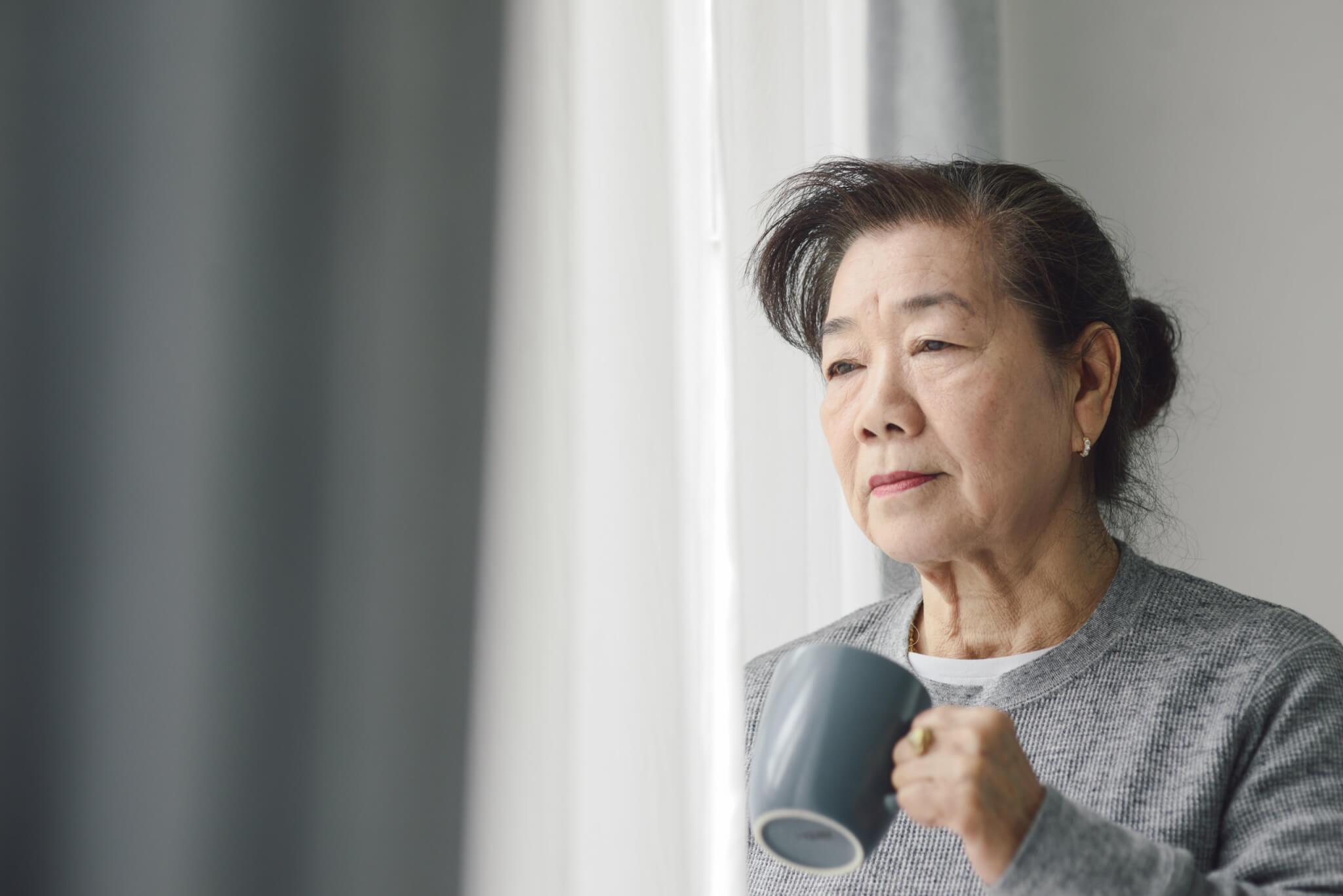EVANSTON, Ill. — Loneliness can affect anyone at any age, but a new study finds it typically gets worse as people grow older. Researchers from Northwestern University have discovered an unfortunate pattern of loneliness during adulthood. Mapping out trends across the average person’s lifespan, researchers found that feelings of loneliness are very common during young adulthood before dropping off during middle age. However, loneliness ramped back up to high levels during old age.
The research, published in the journal Psychological Science, analyzed data from nine long-term studies conducted in countries across the world, including the United Kingdom, Germany, Sweden, and Australia. In total, the study authors examined the lives of over 25,000 adults to reveal these fascinating insights about loneliness across a person’s entire life.
“What was striking was how consistent the uptick in loneliness is in older adulthood,” says lead author Eileen Graham, a professor at Northwestern University, in a media release. “There’s a wealth of evidence that loneliness is related to poorer health, so we wanted to better understand who is lonely and why people are becoming lonelier as they age out of midlife so we can hopefully start finding ways to mitigate it.”
The researchers found a clear U-shaped pattern, with loneliness at its highest in younger adulthood right after the tumultuous transition from adolescence. It then drops to its lowest levels during our 30s, 40s, and 50s in that prime period of middle age. Once we hit our 60s, however, loneliness starts creeping upward again until it peaks in our elderly years.

“Our study is unique because it harnessed the power of all these datasets to answer the same question — ‘How does loneliness change across the lifespan, and what factors contribute to becoming more or less lonely over time?’” Graham explains.
So, why are middle-aged adults the least lonely overall? The researchers believe it’s because this life stage often includes the most social interactions and stable relationships. Middle-aged people tend to be married, have families, go to work regularly, attend their kids’ events, and mingle with several friendship circles linked through their children’s school activities or work.
In contrast, young adulthood (the time just after reaching age 18) can be an isolating time of drifting friendship groups, entering the workforce, finding romantic partners, and general social disarray as teens transition into college or the working world. Meanwhile, the elderly face several risks of loneliness, including losing a spouse, empty nests, friends passing away, and potential illness or disability.
Despite the differences across age groups, several common predictors of loneliness appeared regardless of age:
- Social isolation and lack of close relationships
- Being divorced, widowed, or single
- Having lower income and less education
- Suffering from physical impairments or disabilities
- Struggling with cognitive decline or mental health conditions
- Unhealthy habits like smoking
“You can have a lot of social interaction and still be lonely or, alternatively, be relatively isolated and not feel lonely,” Graham notes.
Why should people care about these findings? Severe, chronic loneliness is a serious public health issue linked to a higher risk of premature death, similar to smoking cigarettes daily, according to the U.S. Surgeon General. Last year, the office issued a rare public statement calling for action to address America’s “loneliness epidemic.”
Graham notes that the team’s findings underscore the need for targeted interventions that reduce social disparities which lead to loneliness throughout adulthood. The study authors also hope to see doctors assess levels of loneliness during regular wellness visits one day.
Since the nine datasets analyzed were all collected before the COVID-19 pandemic, the researchers believe our current loneliness levels may be even higher due to the months of isolation and loss of social connections experienced globally.
So, how can people combat loneliness at all ages and life stages?
The researchers emphasize cultivating and maintaining meaningful social ties, whether that’s investing in existing relationships, joining clubs or community groups, or even simply smiling and chatting with service workers to feel more socially connected.
“We do have evidence that married people tend to be less lonely, so for older adults who are not married, finding ongoing points of meaningful social contact will likely help mitigate the risk of persistent loneliness,” the study’s co-author, Tomiko Yoneda, concludes.

